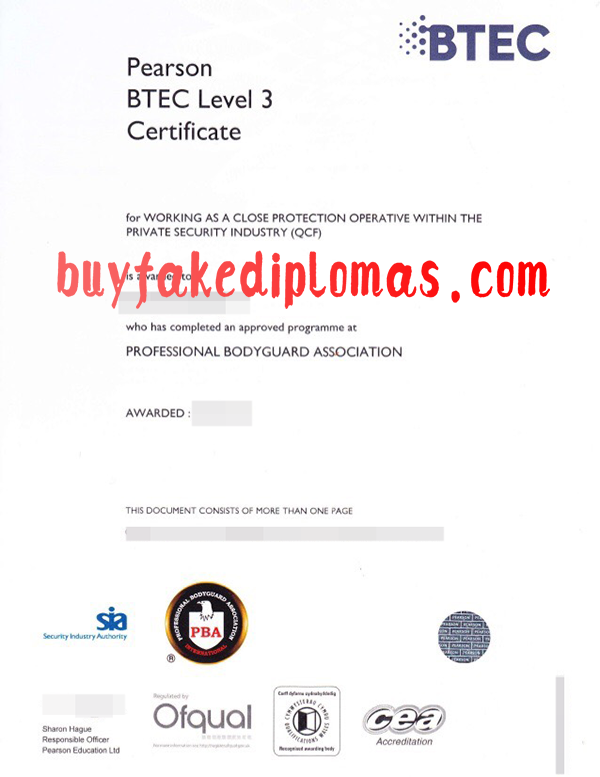
What are BTEC qualifications? The British education system is complex and uses a variety of terms that can be difficult to understand. Buy fake BTEC Certificate. While many students are familiar with more mainstream courses, such as a-levels, there are plenty of equally formal qualifications that may be more suitable for some students. Therefore, it is important to research possible educational pathways before deciding what courses to pursue. BTEC stands for Council on Business and Technology Education. In short, BTECs are vocational, practical courses that can be studied as a more hands-on alternative to traditional qualifications such as GCses and A-levels. buy fake diploma, buy fake certificate. They offer a way to learn through hands-on experience in the chosen field, and are more curriculum-centric than exam-centric. These courses may be suitable for students who prefer a more active learning style rather than other popular qualifications which are more theory-based. There are many factors to consider before deciding to study a btec – read on to find out more about these qualifications and whether they are the right choice for you. purchase fake BTEC Certificate, shopping fake BTEC Certificate.
BTEC, what subjects can I take?
The BTEC has a large number of qualifications – more than 2,000 across 16 areas, which means that no matter what topic you want to work on, there is likely to be a BTEC that matches your interests. As the BTEC is a vocational practice course, many people expect to have courses in areas such as architecture or performing arts – and while it is true that there are many courses in these areas, they are only a small part of the BTEC qualification.
btec also offers subjects that are generally associated with classroom learning, such as computers and engineering, as well as areas that students may not have been exposed to previously in school, such as travel and tourism.
Is BTEC further education or higher education?
In England, Wales and Northern Ireland, qualifications are divided into “grades”, which makes it easier to compare equivalent qualifications. For example, GCSEs in years 9-4 are treated as a Level 2 qualification, whereas A-levels are a Level 3 qualification. Further education, usually at sixth form or university level, involves studying for a Level 3 qualification. Higher education includes qualifications at Level 4 or above, usually at university.
Although most people who study btec use it as an alternative to A-levels (Level 3), there are actually several different levels of btec, ranging from the equivalent of a GCSE.
There are a number of sub-categories of BTEC qualifications available on the Pearson website. While the number of different BTEC types may seem overwhelming, there are three main BTEC qualifications that are most commonly studied.
BTEC Firsts
BTEC First is a set of Level 2 qualifications – the BTEC First Diploma is equivalent to four GCses.
They provide a practical, interactive introduction to career sector jobs, usually for those in the 14-16 age group. However, for students over the age of 16, it is possible to start at this stage by studying for a BTEC Level 2 technical qualification. This ensures that they have the basic knowledge they need to move up. After completing BTEC first, students can continue their studies or enter the workforce by applying for an internship.
BTEC Nationals
BTEC national is the main group studying for BTEC Level 3, which is equivalent to A-levels. Through these qualifications, students have the opportunity to develop professional, career-focused knowledge and skills in their chosen field. After completing the BTEC National course, students can continue their studies in a higher education setting such as university or enter the workforce.
These courses have become more flexible since they were first introduced – now, BTEC national courses can be chosen, equivalent to 1 A-Level(National Extended Certificate), 2 A-levels (National Diploma) or 3 A-levels (National Extended Diploma).
This freedom means that many students take both A-levels and BTECs, choosing the qualifications that best suit the particular subject they want to study.
BTEC Higher Nationals
Many students who want to study BTEC at university level choose BTEC Higher Nationals. Although these are not full degrees, national higher education is equivalent to the first and second years of an undergraduate degree, providing high quality professional teaching in a work-based environment, after which many students move into full-time employment.
Other BTECs
There are a wide variety of other BTEC qualifications, including apprenticeships and BTEC specialist courses. These qualifications are up to Level 7 – the equivalent of a master’s degree. As you may have noticed, choosing a BTEC qualification is not always simple!
However, the range of options available means that you can choose the level and type of qualification that best suits your circumstances and preferences, and have a great deal of flexibility as you continue your journey – whether that is further study or work.
